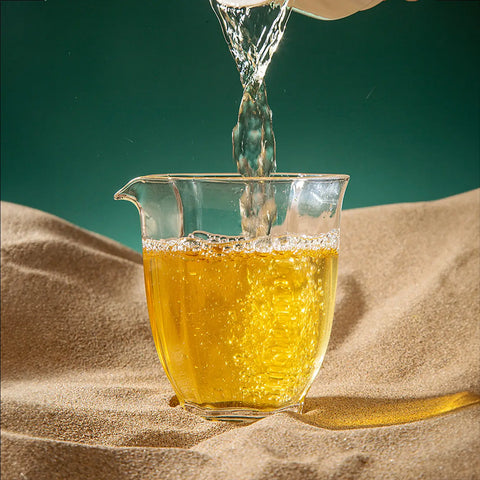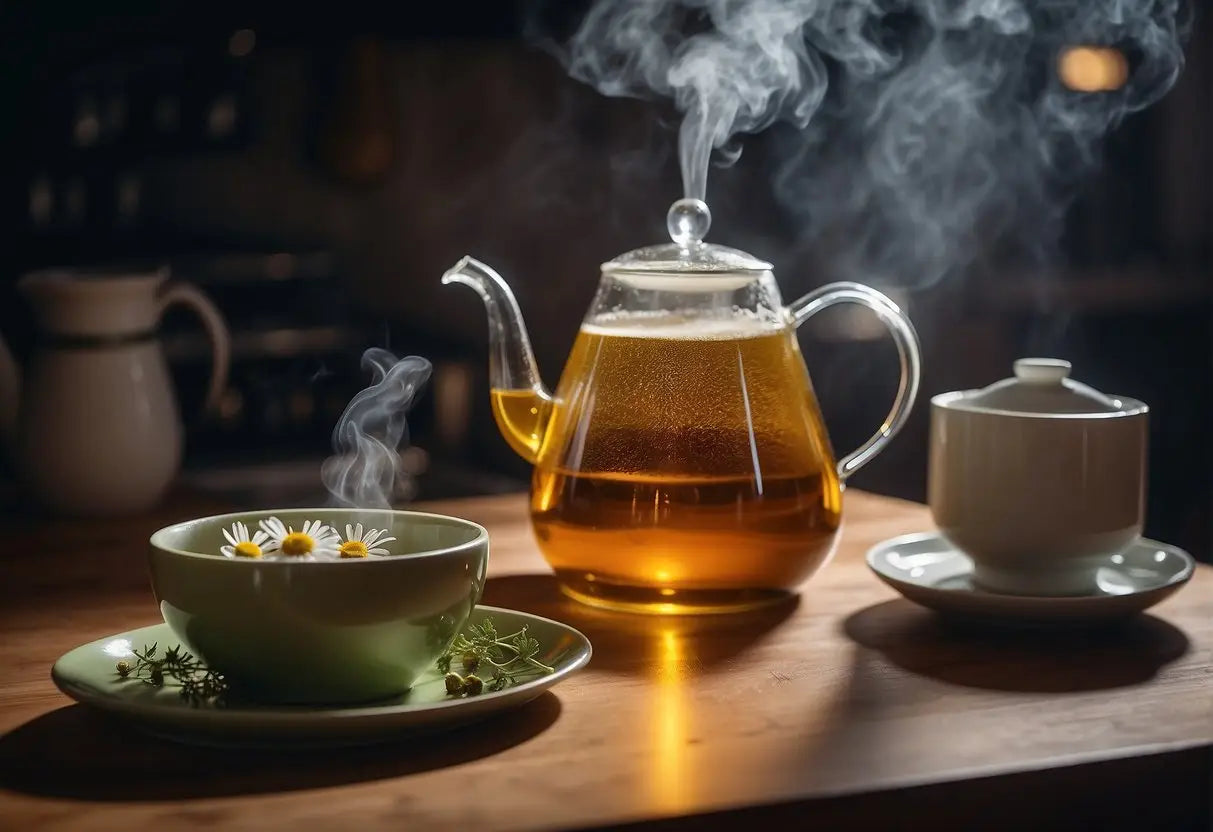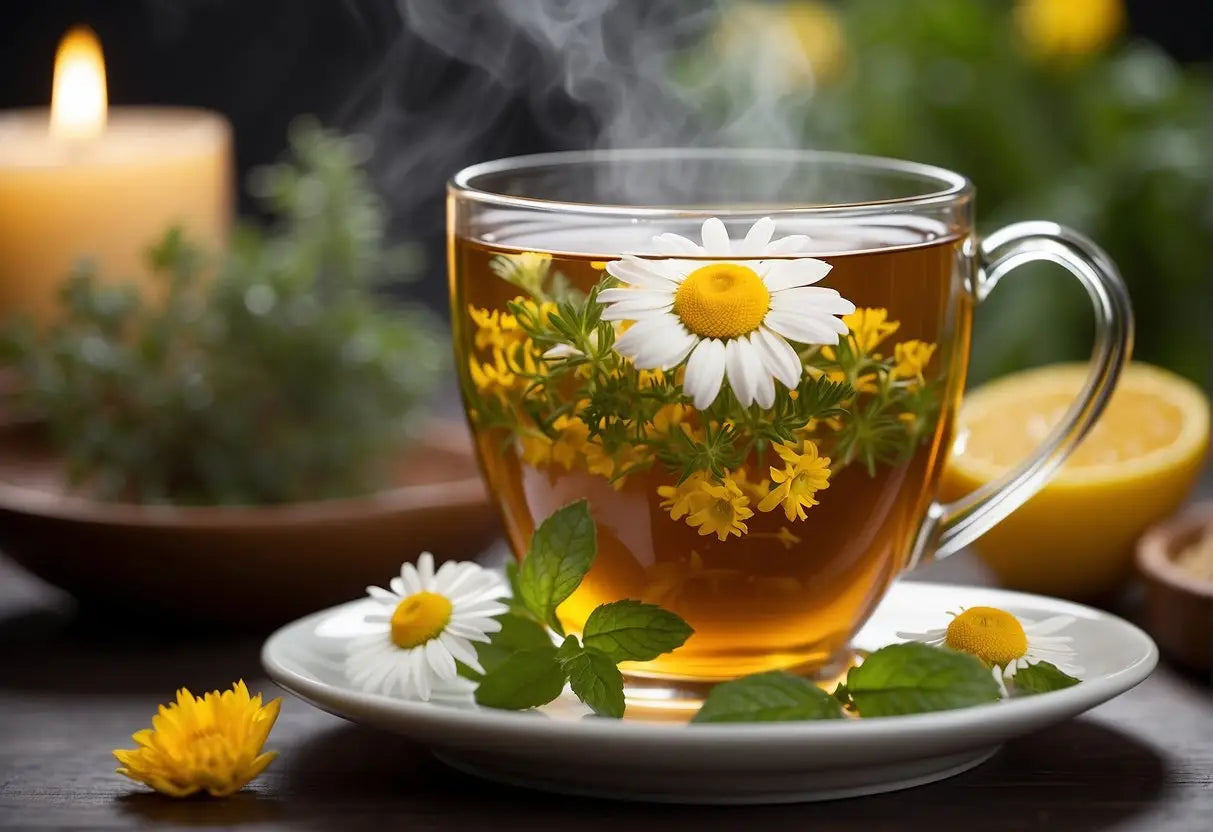What Tea Is Best for Period Cramps
Menstrual cramps, or dysmenorrhea, are painful sensations that you might experience before or during your menstrual period. The pain usually occurs in the lower abdomen but can also spread to the lower back and thighs. The intensity of this discomfort can range from mild to severe and varies from one individual to another.
Cramps are typically caused by prostaglandins, which are chemicals your body releases to make the uterus contract, shedding its lining. High levels of these chemicals can lead to more severe menstrual cramps. Additionally, if you experience excessive or unusual pain, it is advisable to consult a healthcare professional; it could be a sign of conditions like endometriosis or fibroids.
- To better understand cramps, here are their common symptoms you might experience:
- Pain in the lower abdomen and pelvis
- Dull, continuous ache
- Throbbing or cramping pains
- Pain radiating to your lower back and thighs
Managing your cramps can include over-the-counter medication, but non-pharmacological methods like consuming certain types of tea might also provide relief. Being informed about the nature of period cramps is the first step in finding the most effective management technique for you.
Bestsellers
Herbal Teas for Cramp Relief

Herbal teas can offer natural pain relief without the side effects that sometimes come with over-the-counter medications. Each type of tea listed below contains specific properties that may help reduce menstrual cramp discomfort.
Ginger Tea
- Properties: Contains anti-inflammatory compounds
- How it may help: May reduce the intensity of cramps by lowering levels of prostaglandins.
Chamomile Tea
- Properties: Known for its anti-inflammatory and muscle relaxant properties.
- How it may help: Helps alleviate menstrual pain and induce relaxation.
Peppermint Tea
- Properties: Naturally caffeine-free and has muscle relaxant properties.
- How it may help: Can help ease cramps and discomfort by relaxing the muscles of the uterus.
Raspberry Leaf Tea
- Properties: Rich in fragarine, a compound thought to help tone and tighten muscles in the pelvic region.
- How it may help: May lessen cramps by strengthening the uterus and pelvic muscles.
Fennel Tea
- Properties: Contains anethole, a compound that may have estrogen-like effects.
- How it may help: Has been traditionally used to reduce pain intensity during menstruation.
Non-Herbal Teas That Help
In managing period cramps, certain non-herbal teas can be beneficial. They contain properties that can alleviate discomfort during menstruation.
Green Tea
Green tea, rich in antioxidants, can help reduce inflammation and possibly lessen menstrual pain. It contains a compound called EGCG (epigallocatechin gallate) which is known for its anti-inflammatory effects.
- Key Components: Antioxidants, EGCG
-
How it Helps:
- Antioxidants: Fight oxidative stress in the body
- EGCG: Offers anti-inflammatory benefits
To optimize benefits, you may consider drinking 2-3 cups of green tea per day during your menstrual cycle. It's important to stay hydrated and be mindful of the caffeine content if you're sensitive to stimulants.
How to Brew Tea for Cramps

When experiencing period cramps, specific teas can be soothing. Follow these steps to brew a helpful cup:
Ingredients:
- 1-2 teaspoons of chosen tea (examples: ginger, chamomile, peppermint)
- 8 ounces (about 240 milliliters) of water
Instructions:
-
Heat Water:
- Bring water to a near-boil, ideally between 208–212°F (98–100°C).
-
Select Tea:
- Ginger Tea: May reduce inflammation and relieve pain.
- Chamomile Tea: Known for its relaxing properties.
- Peppermint Tea: Can ease digestive discomfort and pain.
-
Steep Time:
Lao Ban Zhang
- Place your chosen tea into a teapot or mug.
- Pour hot water over tea.
- Steep for 5-10 minutes, allowing the herbs to infuse.
-
Strain Tea (if using loose leaves):
- Remove tea leaves or bag from water after steeping.
-
- Drink your tea slowly, giving your body time to absorb the benefits.
Optional Additions:
- A squeeze of lemon for flavor and vitamin C.
- A teaspoon of honey for sweetness, if preferred.
Tips:
- Drink tea at the onset of cramps for maximum benefit.
- Consult your physician if cramps persist or are severe.
Lifestyle Choices and Diet
Making informed lifestyle and dietary choices can significantly affect your period cramps. Staying hydrated and choosing certain foods can alleviate cramps, while exercise and relaxation techniques can further relieve menstrual discomfort.
Hydration and Diet
-
Hydration: Aim to drink 8-10 glasses of water daily. This can help reduce bloating and ease cramp severity. Hot or warm water may enhance comfort.
-
Herbal Teas: Consider these options:
- Ginger tea: Anti-inflammatory properties may help reduce pain.
- Peppermint tea: A muscle relaxant that could soothe cramps.
-
Herbal Teas: Consider these options:
-
Diet: Focus on foods rich in magnesium, calcium, and omega-3 fatty acids to help reduce muscle tension and inflammation.
- Foods to Include:
- Leafy greens (like spinach and kale)
- Nuts and seeds (especially almonds and chia seeds)
- Fatty fish (such as salmon)
- Foods to Include:
Exercise and Relaxation Techniques
-
Exercise: Light to moderate exercise, like walking or yoga, can help improve circulation and reduce cramping.
- Recommended Activities:
- Yoga: Poses like Child's Pose or Cat-Cow can be beneficial.
- Walking: A gentle, low-impact activity to keep the body moving.
- Recommended Activities:
-
Relaxation Techniques: These can help manage the stress and anxiety that often accompany periods.
- Techniques to Try:
- Deep Breathing: Stress reduction can lessen the perception of pain.
- Meditation: Helps to focus the mind and relax the body.
- Techniques to Try:
When to See a Doctor
If you experience unusually severe menstrual cramps or notice a marked change in the pattern or intensity of your pain, it is essential to consult a healthcare provider. Pay attention to the following symptoms that warrant medical attention:
- Persistent pain: If the pain doesn't subside with over-the-counter medication or natural remedies, including tea, seek professional advice.
- Heavy bleeding: Soaking through one or more sanitary pads or tampons every hour for several consecutive hours might indicate a problem.
- Extended duration: Menstrual pain that lasts longer than two to three days or pain that begins well before your period starts or continues after it ends should be evaluated.
- Other symptoms: Accompanying symptoms such as fever, nausea, vomiting, or fainting are signs you should see a doctor.
- Interference with daily activities: If period cramps consistently prevent you from engaging in your normal activities, that’s a strong indication to get a professional assessment.
You should also consider medical advice if you have been diagnosed with related conditions such as endometriosis or uterine fibroids, or if you suspect you might have these conditions based on your symptoms.
Remember, while occasional mild cramps are typical, persistent, severe pain is not a normal part of menstruation and can signal underlying health issues that require treatment. Don't hesitate to reach out to a healthcare provider to ensure your well-being.
Frequently Asked Questions

In this section, we'll answer common queries regarding which teas are most effective for easing menstrual cramps and how they should be properly prepared for maximum benefit.
What types of tea can alleviate menstrual cramps effectively?
Ginger tea, chamomile tea, and peppermint tea are among the most effective for reducing menstrual cramps due to their anti-inflammatory properties.
Are there specific herbal teas known to provide relief for menstrual discomfort and bloating?
Yes, herbal teas like fennel, dandelion, and raspberry leaf are known to soothe menstrual discomfort and alleviate bloating.
Can drinking certain teas during menstruation cause any adverse effects?
While most herbal teas are safe, excessive consumption of some teas may lead to adverse effects such as liver damage or interactions with medications. It's important to consume them in moderation.
Which is more effective for easing menstrual pain, chamomile or peppermint tea?
Both chamomile and peppermint tea are effective for menstrual pain relief. Chamomile is known for its relaxing effects, while peppermint can reduce discomfort through its menthol content.
How can one prepare herbal tea to help with period cramps?
To prepare herbal tea, steep a tea bag or 1-2 teaspoons of loose-leaf tea in hot water for 5-10 minutes. Avoid over-brewing to prevent bitterness.
Are there any teas that should be avoided during your period for health reasons?
You should avoid caffeinated teas, such as black tea and green tea, as they can increase tension and contribute to dehydration.
← Older post Newer post →











